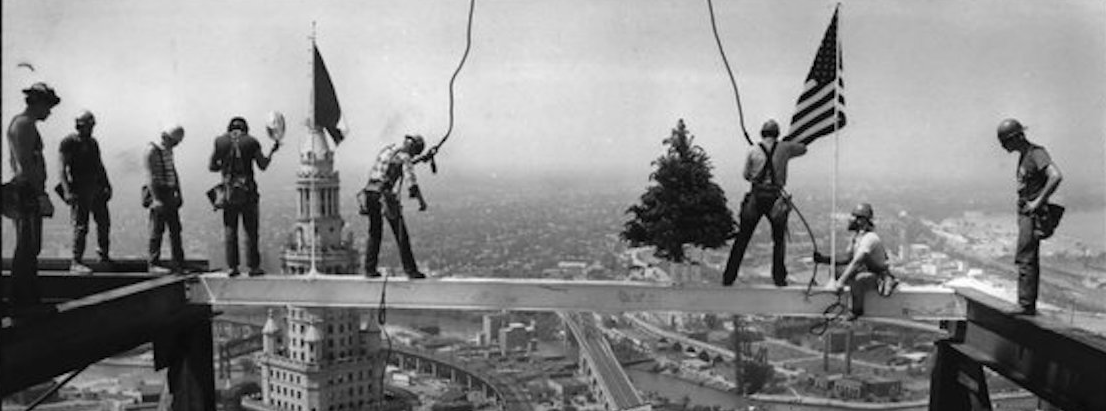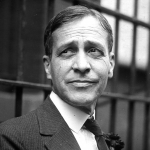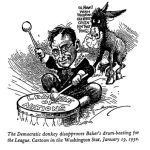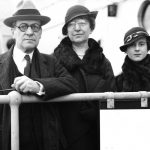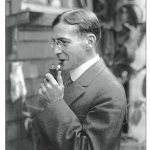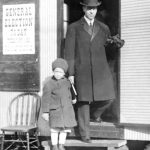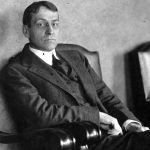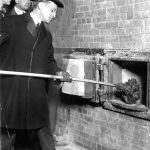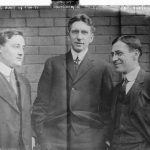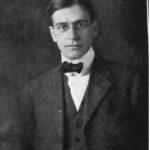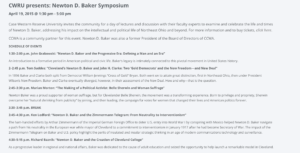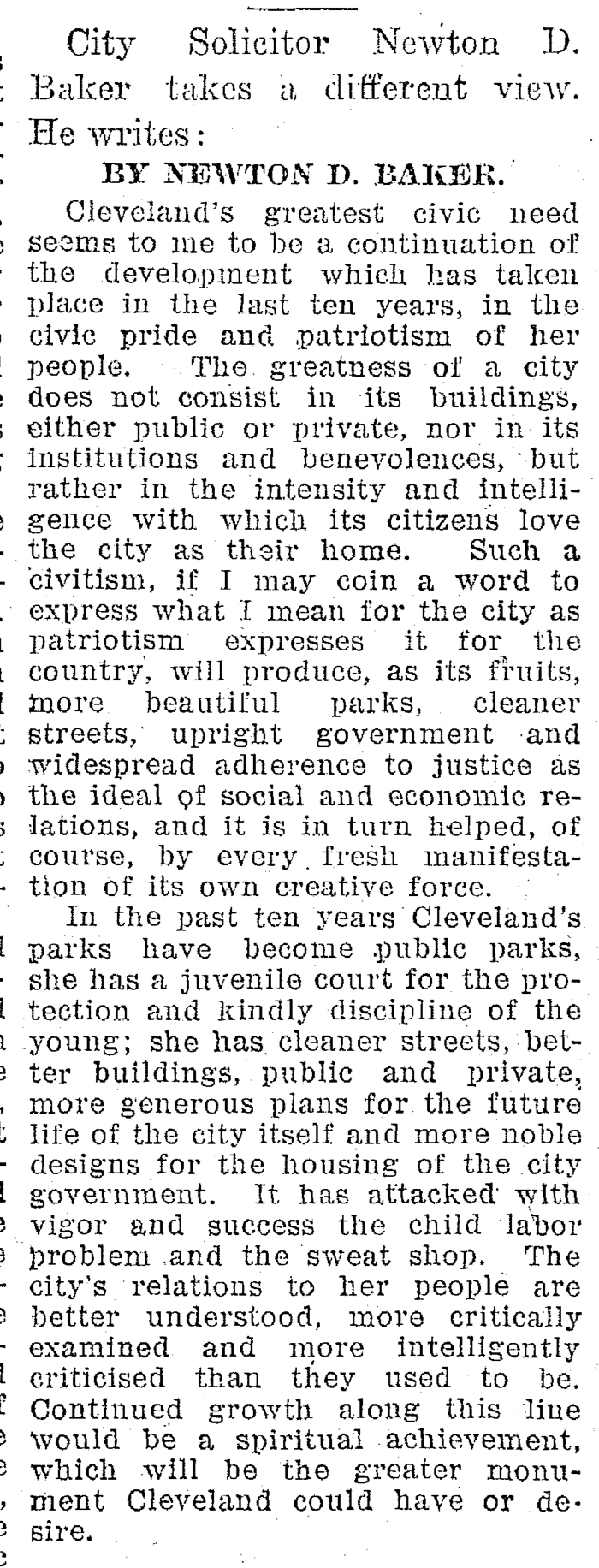Newton D. Baker, who was the official head of the Cleveland Democrats during the twenties and well into the thirties, was one of the few Cleveland political figures to become a nationally known statesman. He was called by President Wilson to become secretary of war before the United States got into World War I, and bore the entire responsibility for mobilizing an army from scratch, setting up the draft, and sending an expeditionary force of one million men to fight in France. After the war, drained emotionally and physically, he returned to Cleveland, but he remained active after Wilson’s death.
He was the unquestioned leader of Ohio Democrats at national conventions and kept such close contact with the national scene that in 1932, he had strong backing in both north and south for the presidential nomination. Had Roosevelt not been nominated on an early ballot, Baker stood a good chance of being chosen as a compromise candidate.
By any standard, Baker was one of the great men of his time. After he returned to Cleveland, he was always in demand to hold unpaid, nonpolitical civic jobs, and he continued to take a strong hand in Democratic party affairs, for he believed that good citizens ought to involve themselves in organized politics and government. He was revered by all newspaper men who came in contact with him, because he was simple, unpretentious, sincere and always approachable, a perfect example of the fact that the biggest men in government, industry, and the professions are the easiest to deal with. It isn’t always easy to get through their cordon of secretaries and assistants, but when you meet the big man face to face, he goes direct to the point and gives a straight answer. He will expect you to treat all confidential matters confidentially, but he puts on no airs, doesn’t give out the old double-talk. This was Newton D. Baker.
Baker’s unblemished principles made him the ideal teammate for the pragmatic Gongwer. Baker was always available to pronounce the principles, and take the high road, while Gongwer took the low road and attended to the patronage, the endorsements, the nuts and bolts of party management, without having to make speeches. Gongwer idolized Baker, but he also appreciated how useful Baker was to him as a party boss. Baker held the official position of chairman of the central committee, but Gongwer was chairman of the executive committee. Baker made statements and speeches. Gongwer made decisions and backed candidates. Baker approved completely of Gongwer’s decisions; he had no illusions about the necessity for a party boss. The Democrats were lucky to have them both; the Republicans had no such elder statesman as Baker. They left all the problems to Maschke, who made no pretense to being a statesman.
Baker came to Cleveland from Martinsburg, West Virginia, where he grew up as a Democrat; his ancestors had been Confederates. He joined Tom L. Johnson early, and was city solicitor, then law director. When Johnson died, Baker was the natural heir to run for mayor. When Wilson chose him for secretary of war, Baker was known as a pacifist. Wilson was not concerned about that; he needed a man of integrity.
When he returned to Cleveland, Baker was tired, middle-aged, disillusioned, and nearly broke. He had spent so many years in government that he had had no opportunity to accumulate money. So he organized a new law firm with two old Democratic friends — Joseph C. Hostetler, who had originally come from a farm in Tuscarawas County, and Thomas L. Sidlo, a bright young man who had been in Baker’s cabinet as service director. The firm soon attracted affluent corporate clients, and today is still one of the most influential and largest in Cleveland (although no one named Baker, Hostetler or Sidlo is still with the firm). PD editor Erie Hopwood was a close friend and client of Newton Baker; so was Elbert H. Baker (no relation), chairman of the Plain Dealer board.
Baker had a small, slight body, but a big mind. He was only a few inches more than five feet tall, was slender and lightweight. In addition to an amazing intellectual capacity, he had a deep, melodious voice and an uncanny ability to speak in complete, convincing sentences without a note in front of him. He simply knew exactly what he wanted to say, and how to say it; and he said it in the most mellow tones, which came out without the least bit of phoniness, unlike most orators.
Baker was a most approachable man, completely without deviousness or stuffiness. It was always easy to get to see him; all that was needed was to get his secretary to make a date. The secretary was usually a young law student or a newly graduated lawyer. (One of his most competent and popular secretaries was Henry S. Brainard, who later became city law director and after that, counsel for the Firestone Tire & Rubber Company.)
Baker was so short that he literally could, and would, curl up in a big office chair, and tuck one foot under him. He regularly smoked a big-bowled pipe. He was calm and even-tempered and went out of his way to be kind to young people. He was never without a book near at hand, usually some tome on history or philosophy. He was continually learning, and never wanted to waste a moment. He was often seen in a hotel corridor, waiting his turn to speak, quietly reading a book. He had plenty of books — not just law books, but reading-type books — in his office.
Everyone who heard Baker speak marveled at how he could extemporaneously come forth with the most cogent, well-reasoned, well-phrased arguments, without notes. He had such mental discipline that he arrayed his thoughts beforehand and knew how to express them for the most telling effect. He never prepared a text.
He was a tremendously effective courtroom lawyer. A1though he did not appear often in court, when he did it was worth paying admission to hear. One such time was when he defended Editor Louis B. Seltzer and Chief Editorial Writer Carlton K. Matson of the Press against a charge of contempt of court laid on them by Common Pleas Judge Fred P. Walther. The Press had severely rebuked Judge Walther for giving a light slap on the wrist to a defendant in a gambling case that involved Sheriff John M. Sulzmann (sheriffs were always in the grease with Cleveland newspapers). Walther took offense and cited the two editors for contempt. Baker, who was the Press’s lawyer as well as the Plain Dealer’s, appeared personally to defend them.
Baker’s cross-examination was superb, and his demolition of the judge’s reasons for citing the editors was icy, logical, and devastating. He went about as far as a lawyer could without saying in so many words that the judge was incompetent, ill-advised, or both. He made Walther seem like a pretentious fool. Finally, the irritated judge said, “Mr. Baker, are you expressing contempt for this court?” Baker, poker-faced, said firmly, “No, your honor, I am trying to conceal it.” (Walther found the editors guilty, but the court of appeals, after hearing Baker, freed the two.)
Baker used to enjoy telling of the sage advice he got from an old-timer, a brilliant courtroom lawyer, Matt Excell, when he was just a kid breaking in. Excell told him what emphasis to use in addressing a jury. “If the facts are on your side, argue the law,” advised Excell. “If the law is on your side, argue the facts. If neither the law nor the facts are on your side, confuse them, Newtie, confuse them.” Such smart tactics are still being used.
Baker was a man of broad culture. He was a music lover and supporter of the Cleveland Orchestra. (Mrs. Baker was an accomplished concert pianist.) He was deeply interested in education, and was offered the presidency of both Ohio State University and Western Reserve, but he preferred to stay with his law practice. He did serve as chairman of the board of trustees at Reserve, and was also on the board at Ohio State. The Newton D. Baker Hall now contains the dean’s and other administrative offices at Reserve, and there is a Baker Hall, a men’s dormitory, at Ohio State.
Cleveland lost its number one citizen when his heart gave out in 1937.
(His son, Newton D. (Jack) Baker II, has been administrator of the Lakeview Cemetery Association for several years, and his wife Phyllis, is active in Cleveland Orchestra and charitable efforts.)
Cleveland: Confused City on a Seesaw
by Philip W. Porter
retired executive editor of the Plain Dealer
1976
Courtesy of CSU Special Collections
